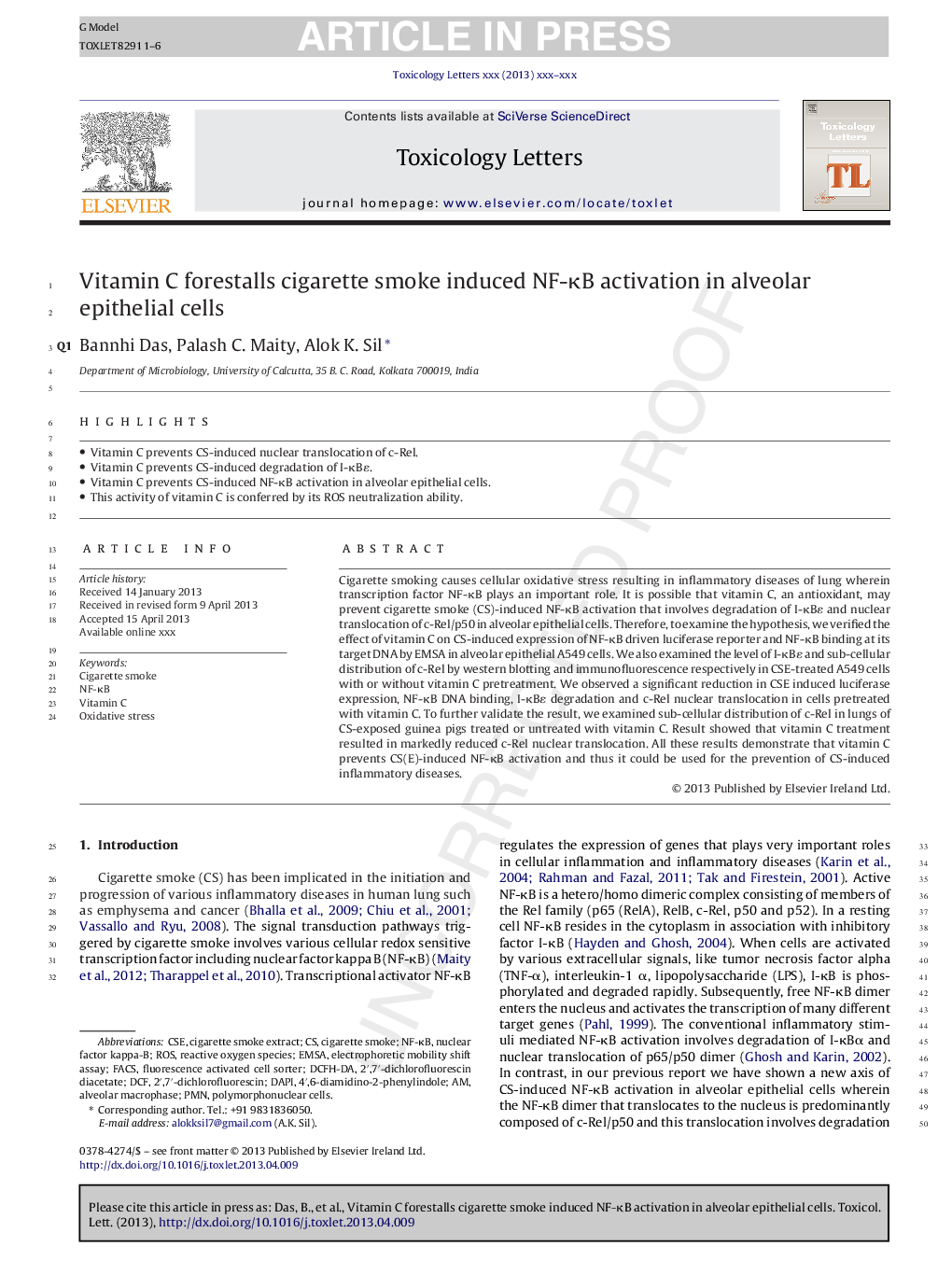| Article ID | Journal | Published Year | Pages | File Type |
|---|---|---|---|---|
| 5860596 | Toxicology Letters | 2013 | 6 Pages |
Abstract
Cigarette smoking causes cellular oxidative stress resulting in inflammatory diseases of lung wherein transcription factor NF-κB plays an important role. It is possible that vitamin C, an antioxidant, may prevent cigarette smoke (CS)-induced NF-κB activation that involves degradation of I-κBε and nuclear translocation of c-Rel/p50 in alveolar epithelial cells. Therefore, to examine the hypothesis, we verified the effect of vitamin C on CS-induced expression of NF-κB driven luciferase reporter and NF-κB binding at its target DNA by EMSA in alveolar epithelial A549 cells. We also examined the level of I-κBε and sub-cellular distribution of c-Rel by western blotting and immunofluorescence respectively in CSE-treated A549 cells with or without vitamin C pretreatment. We observed a significant reduction in CSE induced luciferase expression, NF-κB DNA binding, I-κBε degradation and c-Rel nuclear translocation in cells pretreated with vitamin C. To further validate the result, we examined sub-cellular distribution of c-Rel in lungs of CS-exposed guinea pigs treated or untreated with vitamin C. Result showed that vitamin C treatment resulted in markedly reduced c-Rel nuclear translocation. All these results demonstrate that vitamin C prevents CS(E)-induced NF-κB activation and thus it could be used for the prevention of CS-induced inflammatory diseases.
Keywords
NF-κBFACSPMNCSEDcfDCFH-DADAPI2′,7′-dichlorofluorescin2′,7′-dichlorofluorescin diacetate4′,6-diamidino-2-phenylindoleROSElectrophoretic mobility shift assayOxidative stressCigarette smokePolymorphonuclear cellsEMSA یا electrophoretic mobility shift assay cigarette smoke extractnuclear factor kappa-Bfluorescence activated cell sortervitamin CReactive oxygen species
Related Topics
Life Sciences
Environmental Science
Health, Toxicology and Mutagenesis
Authors
Bannhi Das, Palash C. Maity, Alok K. Sil,
